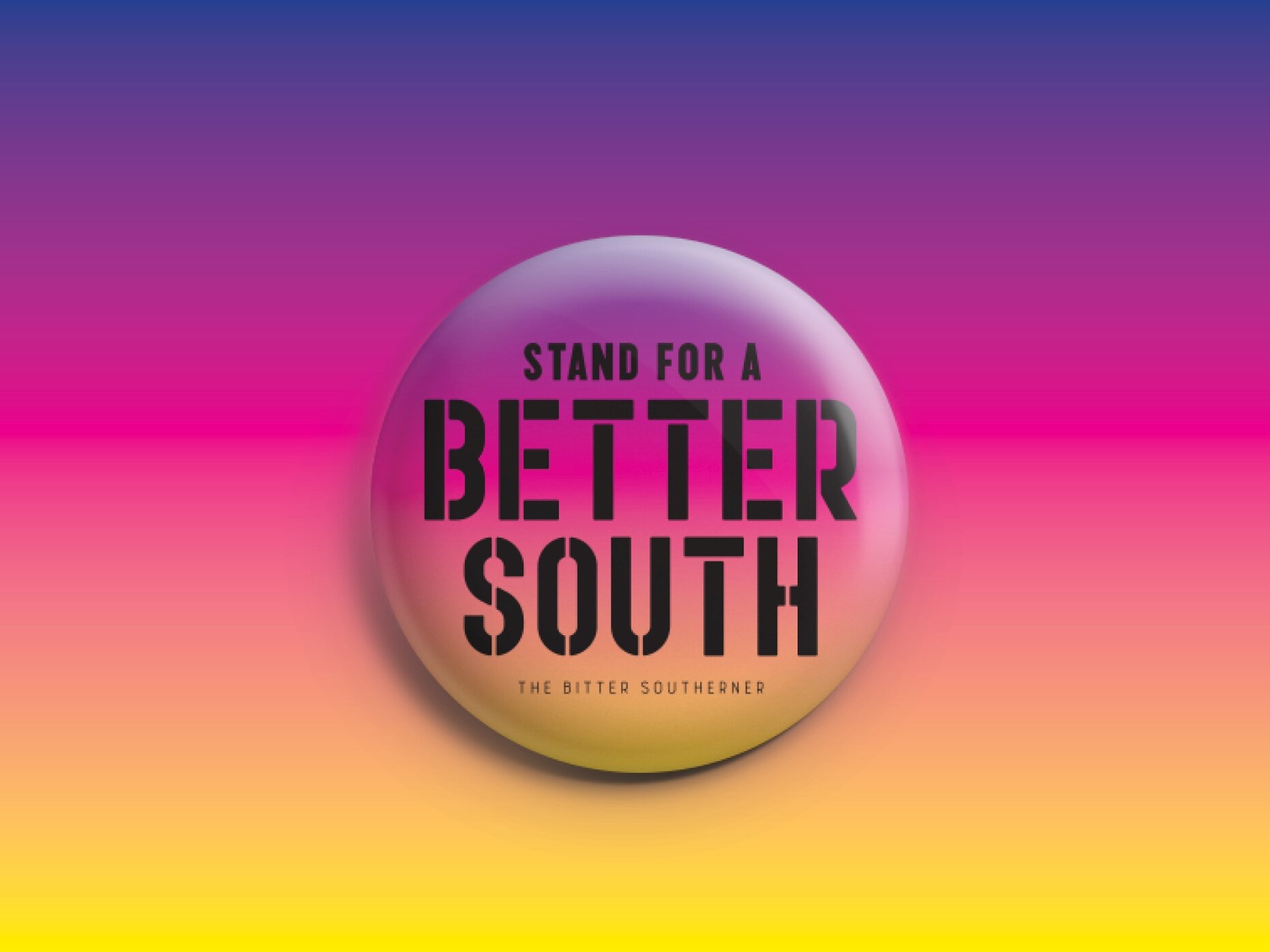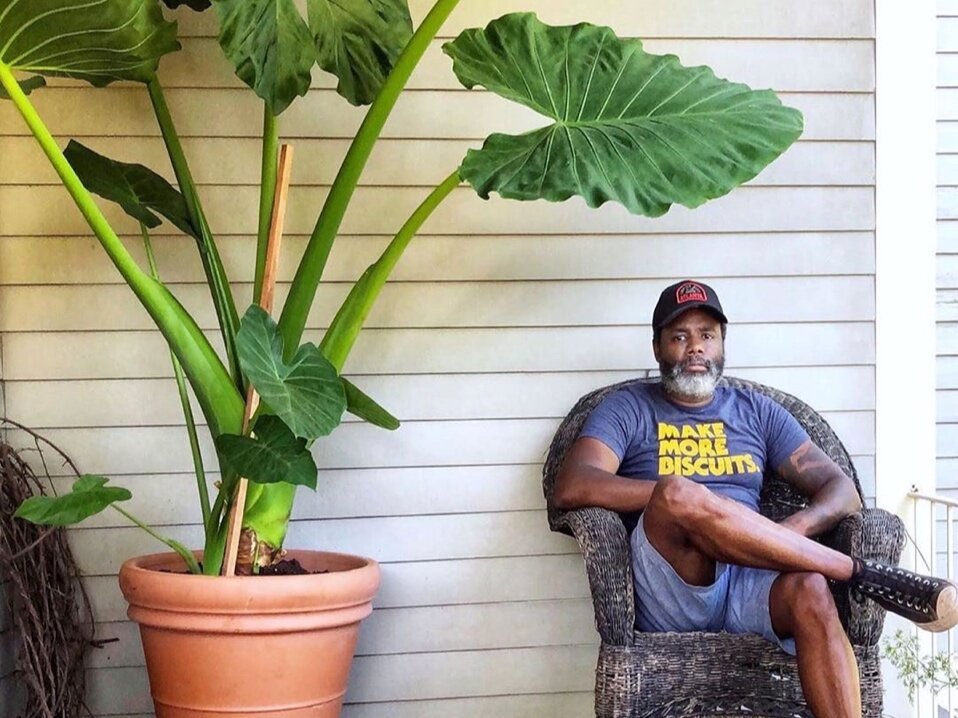A Q&A With Filmmaker Nadine Natour and Exclusive Clip from the Short Film
In her latest project, “Natours Grocery,” Nadine Natour turns the camera on the mom and pop shop her parents run near their home in rural Appomattox, Virginia. Natour shared this exclusive clip with the Bitter Southerner and talked with us about scapegoating, that elusive feeling of “home,” and what she learned working on “RBG.”
~ Exclusive Footage from the Film ~
The short film, “Natours Grocery,” will premiere as part of POV Shorts on PBS Monday, Oct. 26 (check local listings or stream on pbs.org). The Bitter Southerner is honored to present this exclusive excerpt, trailer, and conversation with the filmmaker Nadine Natour and our managing editor Josina Guess.
Josina Guess: You were born and raised in Appomattox, Virginia, and your parents were born in Palestine. What do you think of as “home”?
Nadine Natour: Like most children of immigrants, I never felt fully at home in either of my cultures. What surprised me most while making the film was to learn that my parents often felt the same way. Even though they had grown up in Palestine, something about coming to the U.S., meant "home" was, in some sense, forever lost. I think the film shows the interesting ways they've learned to suppress some parts of themselves to adapt.
JG: In the clip, your mom says she brought you and your siblings to the store as young children. What is one of your earliest memories of Natour’s Grocery?
NN: Our longtime customers Ricky and Tammy Martin babysitting me. Even if I didn't remember, Ricky likes to remind me every time I wait on him at the store.
~ Watch the Trailer ~
JG: Why did you decide to turn the lens on your parents and their store? What were some of the biggest surprises, rewards, and challenges in making your own parents the subject of your work?
NN: In 2016, the Trump campaign used hatred towards immigrants and Muslims, among other groups, to win the presidency. For the first time, someone in the mainstream discourse was out there, in the open, espousing the same sort of racism that was the undercurrent of decades of policies of surveillance and detention. When Appomattox voted majority Trump, I was curious to understand how people viewed our presence in the town with the knowledge they were voting for someone vocally opposed to immigrants, to Arabs, to Muslims. That's what led me to begin filming.
JG: You interviewed a neighbor in your town who said that after 9/11 he noticed an uptick in Islamaphobic anti-immigrant rhetoric. You were just becoming an adolescent in 2001. How did 9/11 affect your sense of belonging in the United States and in the South?
NN: My three younger sisters and I shared very different experiences of growing up in Appomattox. Whereas I felt very much at home as an adolescent, the political atmosphere in the U.S. would shift with each new president. Each sister found herself feeling more and more alienated from our Virginia life. My youngest sister was born after 9/11 — in fact, she was born on Sept. 12, 2001 — and by the time she became a teen, the latent Islamophobia of prior administrations was allowed to thrive in the public sphere unchecked. For me, my friends danced the debka, an Arab folk dance, at my 16th birthday party; for her, she fended off ignorant comments and persistent racism all through high school. Compared to many other Muslim families in the U.S., we enjoy a privileged existence; we've rarely been singled out or attacked for our heritage. But while many stories about Islamophobia are set after an incident occurs, I was curious to explore people's perspectives on Muslims and immigrants in the absence of a triggering event.
JG: You interspersed your parents’ voices and memories of Palestine with clips of the president saying, "I don't want them in our country." It felt like a very powerful form of storytelling to let those two narratives share the same space. Why did you bring the president's voice and counternarrative into the telling of your parents' story?
NN: Many politicians, not just Donald Trump, scapegoat immigrants to mask their failings at providing for people. People in small towns like Appomattox suffer from the loss of manufacturing jobs, the lack of access to affordable healthcare, the instability and fear of daily living without a safety net. My parents' struggle to find security and dignity in the U.S. mirrors the struggle everyday Americans endure in search of the same. Xenophobia has always been an empty attempt to cast blame on the weakest members of society and my hope is that, in contrast with my parents' earnest hopes for their futures, the audio of the president will ring hollow.
JG: How was it working with Ruth Bader Ginsburg? How did she agree to those exercise shots?
NN: Justice Ginsburg was an incredible individual that I was honored to meet and gain a deeper understanding of in the course of working on the “RBG” film. She agreed to the exercise shots because she was proud of her routine. Her work ethic was legendary and that was something you could see both in the gym and on the bench.
JG: In light of her recent passing do you have a particular memory of her — something you would love for people to know about her work or personality — that you came to know through working on “RBG”?
NN: Through working on the film, I gained an appreciation for the significance of people in your world that can help you realize your greatest potential. For her, that was her husband Marty Ginsburg — she wouldn't have been on the court without him. My fondest memory of working on the film was the opportunity to visit her home. I felt both privileged and thrilled to look at the ordinary items an extraordinary woman possesses.
JG: So, one last question. Is the name of the film and the store Natour’s Grocery or Natours Grocery? We’ve seen it both ways and we keep trying to figure out if we should use the apostrophe or not?
NN: I know this is a strange answer but there is no correct way. You can write it Natours or Natour’s. My dad spells it both ways on the signage and inside the store so I am using the same flexibility in the title. Thanks for checking!
JG: Thank you! I'm all for both/and answers to most things in life. We will just write it both ways. Thanks so much for sharing this piece of your family’s story with us.
Nadine Natour was born and raised in Appomattox, Virginia. She is a graduate of the University of Virginia and Columbia University Graduate School of Journalism. She was the associate producer for “RBG,” an Oscar nominee for Best Documentary in 2019, the assistant editor for “The Sturgeon Queens,” and is currently the editor and field producer with BetterThanFiction Productions.
The short film, “Natours Grocery” will premiere as part of POV Shorts on PBS Monday, Oct. 26 (check local listings or stream on pbs.org).





![NatoursGrocery_[ParkerMichelsBoyce]_1.png](https://images.squarespace-cdn.com/content/v1/51bf0e35e4b010d205f86840/1603220672878-F41LLT56VUTSMS8IA5GA/NatoursGrocery_%5BParkerMichelsBoyce%5D_1.png)


